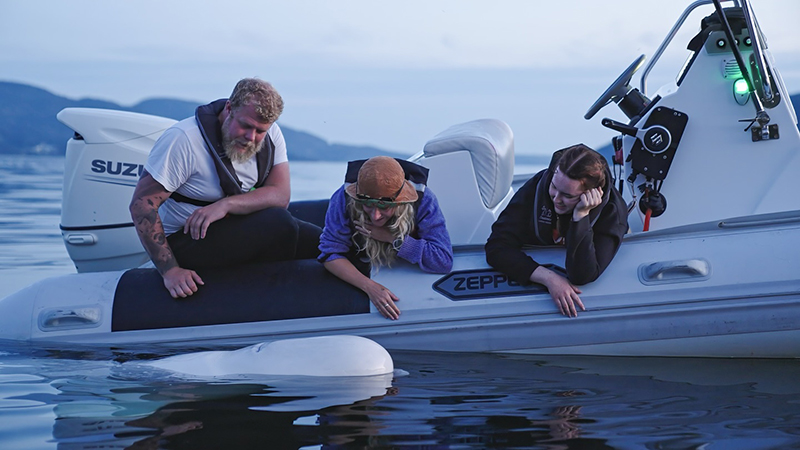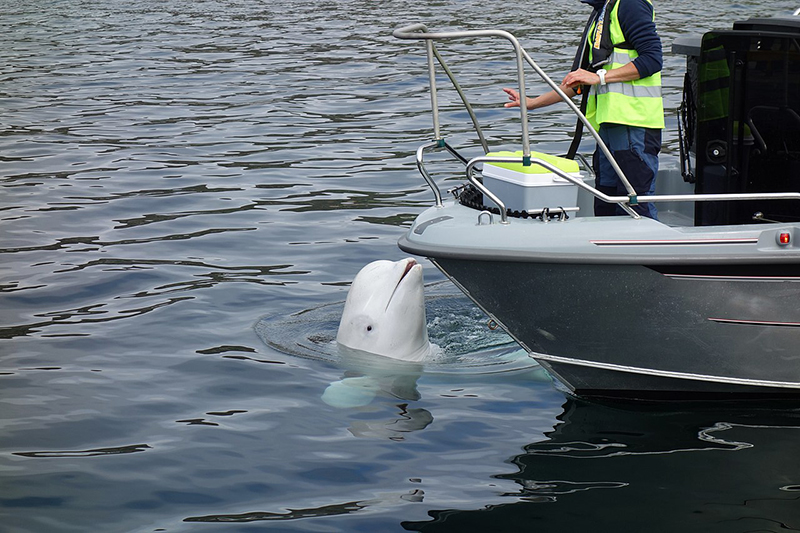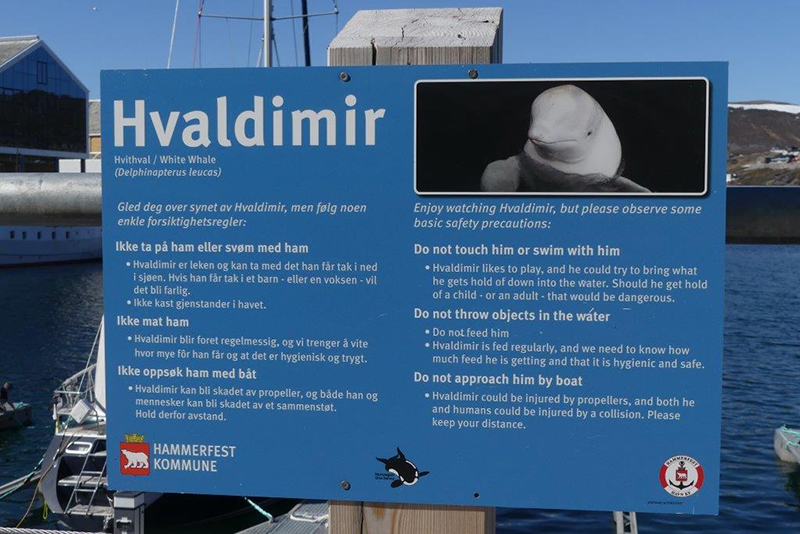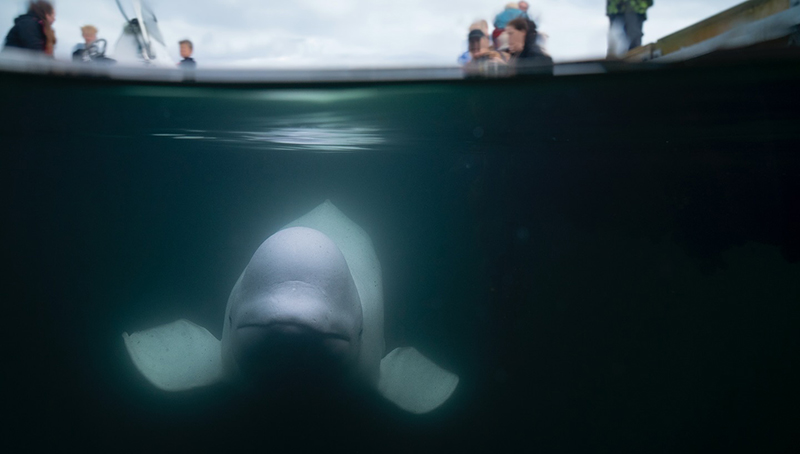
White beluga whale Hvaldimir, dubbed 'Russian Spy', found dead off Norwegian coast
A white beluga whale, which was often suspected to have been trained by Russia to act as its spy but conservationists said had bridged the gap between humans and wild animals in a way that few can, was found dead off the Norwegian coast recently.
The animal was nicknamed Hvaldimir, combining the words 'hval' meaning 'whale' and the name of Russian President Vladimir Putin.
The body of the whale was found floating off the south-western town of Risavika.
Following the recovery of the body, it was rushed to a nearby port for examination.
The whale was first spotted in Norwegian waters five years ago with a GoPro camera attached to a harness that read "Equipment of St Petersburg", reported BBC.
 Hvaldimir was found dead off the Norway coast. Photo Courtesy: ShareAlike 4.0 International/Wikimedia Commons
Hvaldimir was found dead off the Norway coast. Photo Courtesy: ShareAlike 4.0 International/Wikimedia Commons
It was rumoured that the whale might be a Russian spy.
Moscow did not respond to the allegations.
The cause of the death is still not known.
Norway-based NGO Marine Mind confirmed the death of the whale and posted on Facebook: "It is with heavy hearts that we share the news of Hvaldimir’s passing. This morning, after receiving a sighting report from a local, our team arrived to find Hvaldimir floating peacefully in the water, no longer with us."
 Sign at Hammerfest Harbour in Norwegian and English warning against interfering with Hvaldimir. Photo courtesy: DiFronzo / Wikipedia Creative Commons
Sign at Hammerfest Harbour in Norwegian and English warning against interfering with Hvaldimir. Photo courtesy: DiFronzo / Wikipedia Creative Commons
The NGO said a necropsy will be conducted to determine the cause of death.
"Hvaldimir was not just a beluga whale; he was a beacon of hope, a symbol of connection, and a reminder of the deep bond between humans and the natural world. Over the past five years, he touched the lives of tens of thousands, bringing people together in awe of the wonders of nature. His presence taught us about the importance of ocean conservation, and in doing so, he also taught us more about ourselves," it said.
Why was the whale called Hvaldimir?
According to reports, the whale was named 'Hvaldimir' as a pun on the Norwegian word 'hval' which means 'whale' and Russian President Vladimir Putin.
 Hvladimir was special to many. Photo courtesy Marine Mind Facebook
Hvladimir was special to many. Photo courtesy Marine Mind Facebook
Marine Mind said Hvaldimir was discovered in Norwegian waters in April 2019, near the island of Ingøya in Måsøy municipality. This region is at the northern tip of the country, approximately 300 km (via seafaring vessel) from the Norwegian/Russian maritime border.
"Hvaldimir was first photographed wearing a webbing harness with what appeared to be a mount for a small camera. Once that harness was removed, writing on the buckle stating 'Equipment St. Petersburg' in English was observed. Hvaldimir was very interested in people and responded to hand signals. Based on these observations, it appeared as if Hvaldimir arrived in Norway by crossing over from Russian waters, where it is presumed he was held in captivity," according to Marine Mind.
Hvaldimir was 4.2 metres (14ft) long, weighed 1,225kg (2,700 pounds) and was believed to be aged 15 or 16 years.
Mostly found in the northern waters of Greenland, Norway and Russia, Beluga whales live between 40 and 60 years.
Support Our Journalism
We cannot do without you.. your contribution supports unbiased journalism
IBNS is not driven by any ism- not wokeism, not racism, not skewed secularism, not hyper right-wing or left liberal ideals, nor by any hardline religious beliefs or hyper nationalism. We want to serve you good old objective news, as they are. We do not judge or preach. We let people decide for themselves. We only try to present factual and well-sourced news.







